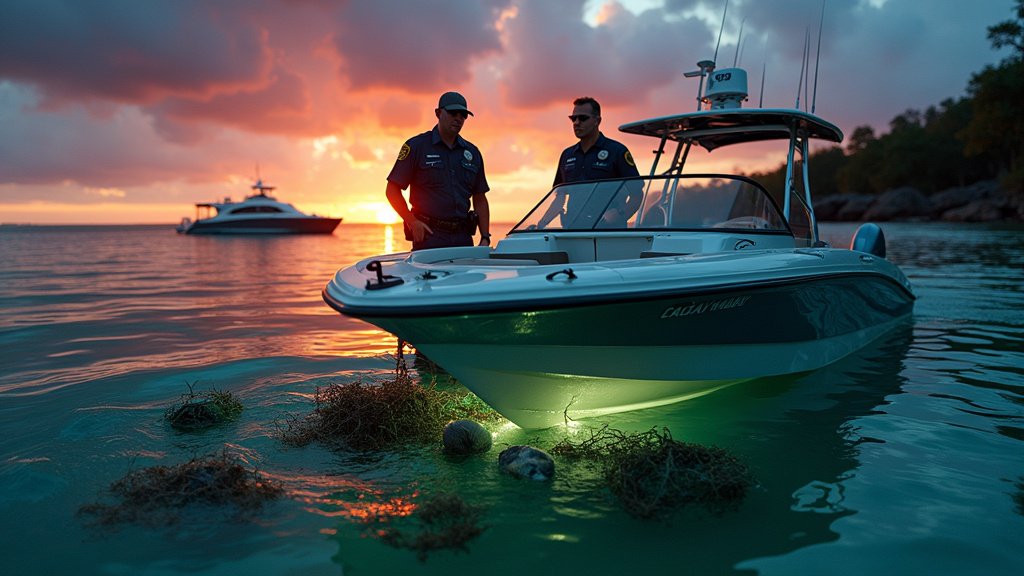Florida’s ‘Boater Freedom Act’ Sparks Concerns Over Potential for Increased Illegal Poaching
Florida’s waterways are often associated with sun-drenched leisure, vibrant marine life, and the thrill of the open sea. However, a recent legislative move has cast a shadow over this idyllic image. The newly enacted ‘Boater Freedom Act,’ designed to enhance boating access and reduce regulations, has become a focal point of controversy, with critics raising serious concerns that the legislation could inadvertently embolden illegal poachers, thereby threatening the state’s delicate marine ecosystems.
The Controversial ‘Boater Freedom Act’
The ‘Boater Freedom Act,’ now law in Florida, represents a significant shift in the state’s approach to boating regulations. While proponents of the bill argue that it will streamline access to waterways and simplify existing rules, the act’s potential ramifications are now under intense scrutiny. The debate centers on whether the Act’s provisions, intended to liberate boaters from cumbersome restrictions, might also inadvertently provide cover for individuals engaged in illegal fishing and harvesting of marine resources. The Act, by its nature, seeks to minimize oversight, which, according to critics, could create opportunities for those seeking to exploit the state’s natural bounty.
The law itself is currently a major topic of discussion, with various stakeholders weighing in on its potential impact. The specifics of the Act, including its relaxation of certain permitting requirements, the easing of enforcement protocols, and the potential limitations on inspections, are at the heart of the debate. Those concerned about illegal poaching argue that these changes, however well-intentioned, could make it more difficult for authorities to monitor and deter illicit activities.
The Critics’ Concerns: A Potential Boon for Poachers
The core of the criticism revolves around the belief that the ‘Boater Freedom Act’ could inadvertently create a more favorable environment for illegal poaching. Opponents express worries about the potential for the Act to undermine existing conservation efforts and jeopardize the health of Florida’s marine ecosystems. They argue that by reducing the burden of regulations, the law may make it easier for poachers to operate undetected.
One of the central arguments revolves around the reduced oversight and enforcement capabilities that critics fear the Act will engender. With fewer inspections, relaxed permitting rules, and potentially diminished enforcement resources, the ability of law enforcement agencies to detect and deter illegal poaching activities could be significantly hampered. This situation, critics maintain, could embolden poachers who currently operate under the threat of significant penalties and the risk of detection. The fear is that they will see this as an opportunity to expand their operations, potentially leading to an increase in illegal catches and damaging practices.
The Significance of the Act
The implications of the ‘Boater Freedom Act’ extend beyond simple recreational boating. The state of Florida’s marine resources are vital to its economy, supporting a vast array of industries, including tourism, commercial fishing, and recreational boating. Any action that could endanger these resources has far-reaching consequences, affecting not just the environment but also the livelihoods of countless Floridians.
The potential for increased poaching poses a direct threat to this economic foundation. Illegal harvesting of fish, shellfish, and other marine life can deplete populations, damage habitats, and disrupt the delicate balance of the ecosystem. This, in turn, could lead to declines in commercial catches, reduced opportunities for recreational fishing, and a loss of revenue for businesses that depend on healthy marine resources.
Balancing Freedom with Conservation
The debate surrounding the ‘Boater Freedom Act’ highlights the complex challenge of balancing individual freedom with the imperative of environmental conservation. While the Act’s supporters may have legitimate reasons for seeking to streamline boating regulations, the potential for unintended consequences cannot be ignored.
The challenge for lawmakers and regulators is to find a way to ensure that the Act achieves its stated goals without undermining the long-term health and sustainability of Florida’s marine resources. This may require a careful review of the Act’s provisions, ongoing monitoring of its effects, and a willingness to make adjustments as needed.
The situation underscores the need for vigilance, collaboration, and a commitment to sustainable practices. The outcome of this situation will undoubtedly have a lasting impact on Florida’s waterways and the communities that depend on them. It is crucial that the state takes immediate action to protect its delicate environment and ensure that boating regulations are effective and that marine resources are not exploited to the detriment of the state and its citizens. The future of Florida’s marine ecosystems, as well as the many industries that depend upon them, hangs in the balance.





